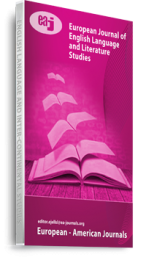This paper seeks to explore the role of political Islam, its relation with the West and its impact on the women of Afghanistan. It discusses the term political Islam, discourse issue of Islamic feminism, demonstrates the power of patriarchy and displays the Western project to support misogynist construction of Islam. It shows how the framework of Islamic feminism re-describes political Islam as a discursive establishment, simultaneously; it presents Esposito’s insights on the representation of political Islam in the West. Furthermore, this paper investigates the subjugated Living of women focussing on an understanding the misogynist attempts that marginalize women. A small critique of some postcolonial works illustrating the chauvinist character of identity politics in Muslim societies is used to explore the set assumptions. Theoretical model of Islamic feminism provides methodology for analyses of A Thousand Splendid Suns (2007). This paper concludes that this novel presents a flourishing view of Islam and reinforces the need to educate the West about the Islamic concept of peace, tolerance and gender indiscrimination.
Keywords: Islamic Feminism, Patriarchy, Political Islam, Representation.

